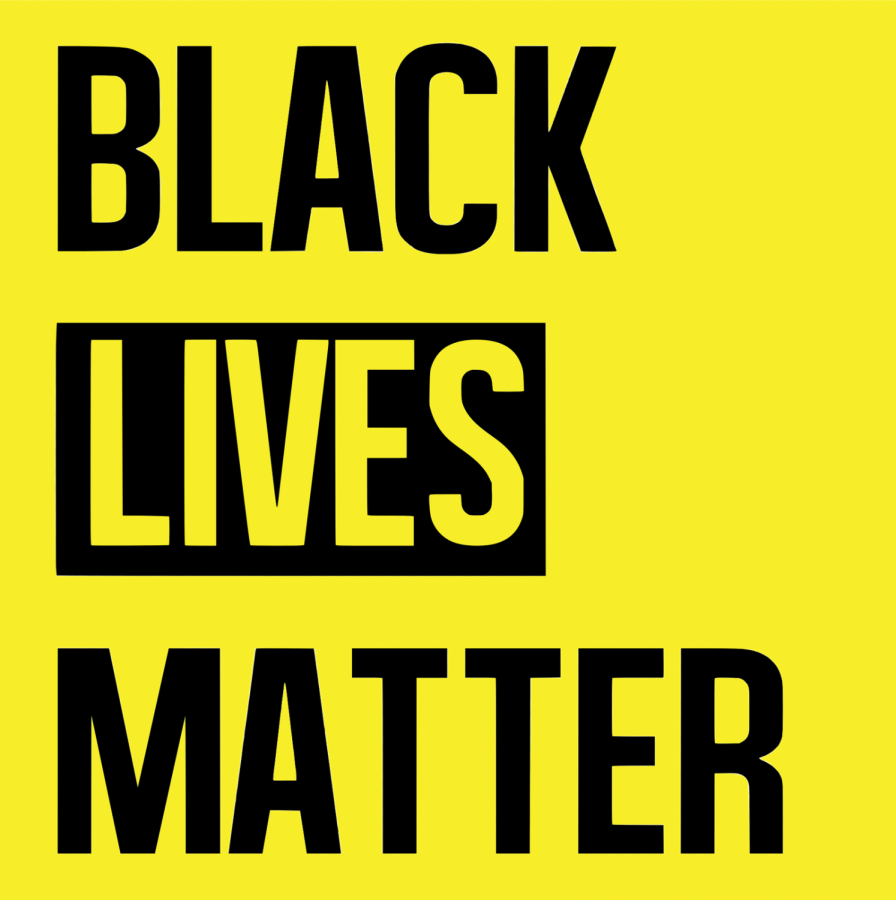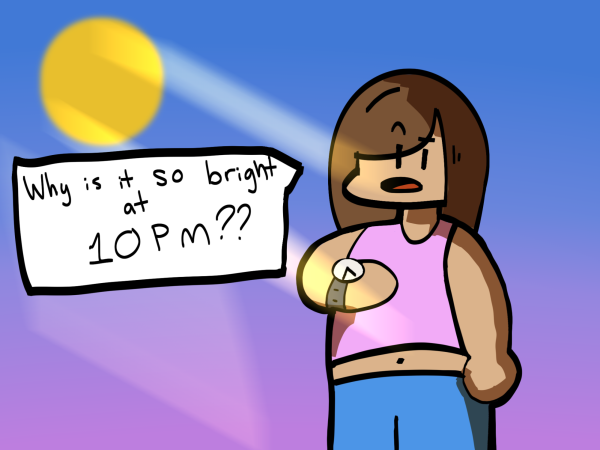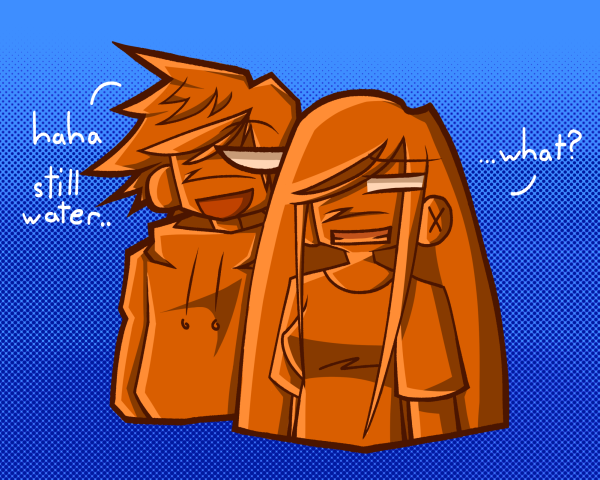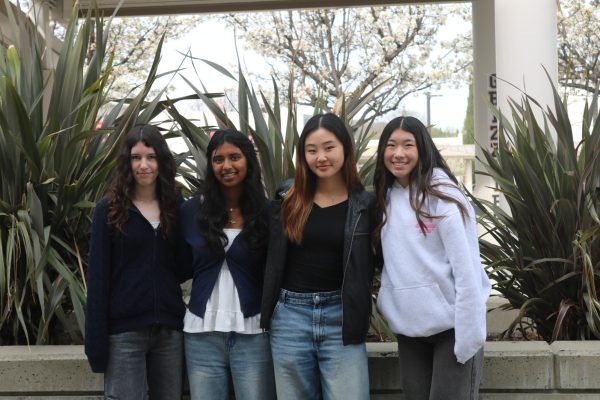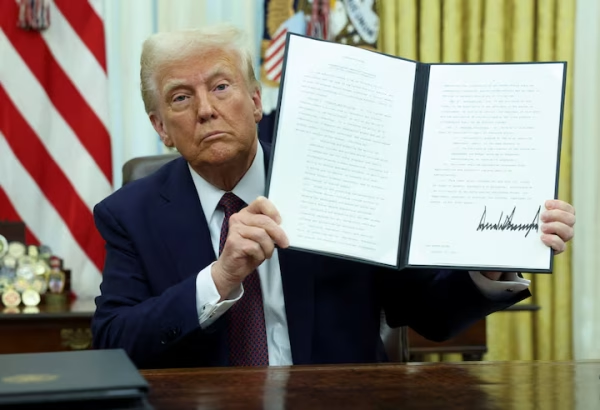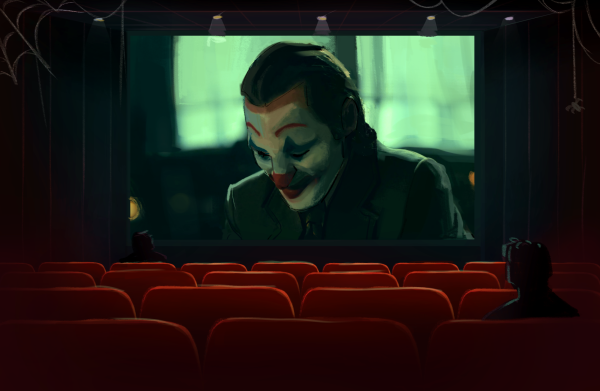Cal High’s Black Student Union answers questions about Black Lives Matter – Part 2
In response to the recent protests over the police killing of George Floyd in Minneapolis, Minnesota, The Californian partnered with the Cal High Black Student Union to publish a Black Lives Matter Week. To end the week, we are publishing the second part of a conversation that occurred between 2020 Cal High graduates Paige Mckindra, Jordan Nabwe, Lajolie Beugre, and Chinwe Nwankwo of the BSU, covering the protests, social media trends, and the failures of Cal High and the education system when it comes to racial education. Please read Part 2 of this incredibly insightful conversation below.
How has our education system failed us?
Jordan: Not teaching us about African history, and all of the great things. I can’t even say that I’ve left high school with a decent knowledge of ancient African history, ancient Asian history. People really underestimate how important that is. Historically, the idea that Africans never built anything -which is a false narrative and is completely untrue- contributes to our racism towards African Americans and Africans. That is something that is so rooted in our minds. Until we actually learn that people built entire kingdoms by themselves, that will be rooted in us, and we can’t even begin to understand how much that impacts our way of thinking, our way of looking at each other. We fail to even address within our public education system that race doesn’t exist. We don’t talk about the fact that race is a social construct.
We don’t address the many times that race had been redefined within our country. It would make it seem so irrational, if I told you how so many people wouldn’t even be considered White 50, 60, and 70 years ago. If I told you that you would probably be like “oh, this doesn’t exist,” and you would reach a new level of understanding that would guide you throughout the world.
We also don’t talk about history, American history. (Sarcastically): we all know that we just ended at segregation, the Civil Rights Movement, and then racism just left. We don’t talk about how we are currently very much segregated. It’s crazy that I will be one of the only Black people in a school of mostly White and Asian people, and we’re not going to talk about that on a national level. There’s a reason that people don’t go to school with each other and don’t live in the same areas. Socioeconomically, we could trace that back. We don’t talk about that. We don’t talk about how we don’t incorporate sociology or psychology into our study of history enough. We like to just say, “this is a group of people, and some things happened to them.” We don’t like to talk about the traumatic effect it has on them and their ancestors. And what people fail to realize is how much that hurts African Americans, when you have all of these feelings inside of you, and no one is telling you why you feel that way. That’s basically gaslighting. My experience as a child, in both public and private education, I’ve always had these feelings of, “this society doesn’t seem alright.” But when you don’t teach kids why it is like that, you teach Black kids that they should just be complacent to their own feelings, and you teach other people not to look on Black issues or other minority issues that don’t impact them.
Lajolie: That goes into how we treat school from then on. If we don’t feel like we’re being represented in history or not being represented period, we’re not going to think that we should go into these certain fields of study. Which is why when you look at the disparity of Black people going into STEM majors, or Black people going into specific science majors where we need them. Specifically in the medical field, because people of color are suffering when it comes to different things like diabetes. It all comes back to education. If we don’t see ourselves being represented, we will not represent when we go out into the world, and that’s really sad.
Paige: Black lives are usually political, everything about us is seen as political, so the excuse that the school gives is “oh, we can’t give political propaganda, we can’t put our opinions on the students,” but Black lives aren’t political. All that Jordan said, that isn’t political. It’s obvious that the education system has racism. They form our lives as political as an excuse not to teach it, because they don’t want to.
Jordan: There was a quote that someone said, “Racism is so American that when you fight racism, people think you’re fighting America,” and that is so true. At the end of the day, there are things that the American CIA and FBI have admitted to doing, that we don’t learn about. This isn’t a conspiracy theory or idea, these are things that our government has already said they have done. Why are you trying to hide it from people? Also, I can’t really say that I left high school with a knowledge of local government. It’s almost as if they don’t want you to vote. It’s almost like they just want you to be a pawn. That’s why it never made sense to me why people aren’t concerned with racism, because in America’s attempts to silence us, they silence everyone. Now you’re not teaching everyone about local government. Everybody should be concerned about local government. If we were, issues that disproportionately affect us probably would be less prevalent, because most people would be represented. It’s something that everyone should be concerned about.
Since you are all Black girls, what do you think it’s like being a Black girl in a predominantly White community?
Chinwe: Exhausting, especially when you do anything at Cal High, for example. When you’re a part of any group or sports a lot of it is assimilating to the people around you and trying to not be too aggressive or too Black. I remember, because I did cheer for three years at Cal High and I wasn’t treated fairly by my other teammates. I remember people would say I was scary, but for anyone that knows me, I’m not scary, all I would do is laugh and sing. It’s not that I’m scary, I’m just Black. Being a Black girl in a predominantly White neighborhood you kind of have to shrink yourself so people don’t think you’re too radical or too aggressive or an angry Black girl and I feel like it messes up your psyche a little bit. You don’t really know who you are in a sense, especially if you don’t have a lot of Black friends, you can really feel like you don’t belong anywhere and it can really mess up the way you view yourself and the way you feel about yourself. It’s tough, it’s a difficult thing.
Jordan: I think that what you said about shrinking yourself and learning how to be heard is so true because I can speak from having gone to a predominantly White school all of my life. I can look back at myself as a child and realize that so much of who I am today or how I am today is because I had to learn how to navigate those areas and how to be heard. So I realized that people didn’t like to hear me speak about racial issues or any issues that mattered openly, for my soul. So at a young age I learned how to be funny and how to use humor to get my point across because people respected it more and would hear it more. And, at a young age, any time that I would come out and say how I felt about a certain topic in school I would be criticized by my class and my teachers, so I had to teach myself that I had to go home and learn everything I could so I would be heard and so that people couldn’t just dismiss what I was saying. I think that learning how to navigate these areas has defined how I act so much that it takes me aback sometimes. I forget how much I’ve had to adapt to living in predominantly White areas.
Lajolie: I feel like there’s this thing called double consciousness or code switching that we have to learn at a young age. How to act when we’re around predominantly White people and how to act when we’re around predominantly Black people, because there is a different cultural dynamic that is happening, and within that you don’t know where you fit in. I know that sometimes I’ve been called ‘oreo’ by my own people because it’s this idea that you’re Black on the outside and White on the inside, but what does that even mean? I remember once I was called the “Whitest Black girl you’ll ever meet,” because I guess I was very smart, I was top of my class at the time in elementary school, and I ‘spoke White’ so I was told what is Black and what is White. But, I was still trying to understand, so who am I, what is me? That is a very complex thing happening on a psychological level that not a lot of people in general experience if they do not have those conflicts or those opposing ideals, which in itself is hard to explain.
Jordan: Just touching on what you were saying about double consciousness, if you are White and are friends with Black people, please take the time to consider how they may have had to act in order to be heard by you or by others. Consider that if you aren’t willing to have them speak about their race, unless it’s in a playful or fun manner, then you are friends with them at their expense. Be very conscious of the role that you play in that.
Paige: When I came to San Ramon in middle school, I looked at Iron Horse and I saw that all the people there had lots of friends and all the popular people were very White, very blonde, very blue eyed, or close to that. I thought, my school wants to like me but I have to look as White as possible, so I straightened my hair, I didn’t like going in the sun. Which is so interesting now because it’s what everyone wants. I’d put concealer on my lips because I thought that they had to be smaller, and I’d wear Ugg boots and did all of these ‘White’ things. But then, when I did that, people would say ‘you want to be White so bad’ and I wondered what this school wanted from me. It was impossible for me to be myself and be liked. If I did what seemed to be ‘in’ then they wouldn’t like me, but if I’m myself they also wouldn’t like me, so I just gave up. I think to experience that at such a developmental age in middle school is really hard. It’s really impossible or really hard to feel secure in yourself when you’re a Black girl in a White community.
Chinwe: I feel like that experience is so universal for a lot of Black girls when they’re growing up, especially in predominantly White neighborhoods and in general. Because, all you see are those pretty Barbie dolls with White, porcelain skin. The way they describe beautiful people on TV is always someone White, and I feel like growing up seeing that makes you want it because you want to be pretty and beautiful. I feel like that’s why there’s a lot of self hate in the Black community, because there is so much deep rooted racism that at a point you don’t even know it. But in time I knew it, because I always wanted to have blonde hair and fair skin without even realizing why I wanted to have that, until I took a step back and realized because all I saw on the media, all I saw going to school was the perspective of being White. I feel like that has to do with how the country presents beauty standards.
Paige: I can also tell, because now I’m very secure in myself and how I look, but people always think I’m jealous of White girls and say I put on this fake confidence when I say that I like how I look. People will just say ‘you’re just jealous of a White girl and you’re using that to cover it up.’ It’s like they want me to be insecure, they want me to want to be White.
Jordan: It’s like you’re damned if you do and you’re damned if you don’t.
Chinwe: It’s like we can’t win. But we will.
As graduated seniors, what do you think Cal High needs?
Paige: Cal High needs empathy. When you say your story about your experience with race to people at Cal High, they don’t care. They block their eyes and ears, because “oh this is political propaganda.” They don’t have the empathy to actually feel what it’s like to be in that situation. They don’t think what it would be like for them to go through that. I also think that Cal needs to stop having racial gaslighting. They say “oh, that was just a joke, it’s not that much of a big deal, you just got that experience because you’re Black,” and they truly gaslight all of our experiences to make us feel like we’re being sensitive and it’s not actually happening, so we’re afraid to voice our opinion. And also, it’s not just the students, teachers do it as well. There’s been times I’ve told my teachers about the experiences my friends and I have been experiencing, and they don’t care. When you see an authoritative figure not care, it’s like “wow, that authoritative figure that’s supposed to be wiser and smarter than me doesn’t think that this is a big deal that this is happening.” So you start thinking it isn’t a big deal. Slowly you begin to hate yourself as a Black person.
Chinwe: With Cal High, empathy has to be a big part of it. I feel like most students do not care about Black voices at school. When we have any amount of racist graffiti or people dressing up as KKK members, anything, when Black students come up and speak about it “we’re just overreacting, we need to relax, it’s not a big deal.” But if a Black student is telling you that it is a big deal, maybe you should take it from their perspective, because it is actually affecting them. Maybe it is a big deal. We need to have more chances to talk about empathy. We need to be more respectful to students, especially if we don’t know where they’re coming from. We need to talk about education, and how we’re educating our students, we need to make some of the curriculum more mandatory. We need to talk about more Black history. After we’re gone. Will we even have a Black History Month? Will that even be a thing at Cal anymore? That’s what I’m worried about, if my sister is going to have to go through Cal without the support system that I know we all had, because we had BSU. But my fear is that there’s not going to be a BSU, that there’s not going to be as strong of a Black community at Cal. Those are my concerns, and I hope that the teachers and principal at Cal will try to advocate for more of a community with the people at Cal. I feel like that’s really what we need, is to have a good community and education with everybody.
Jordan: I think that we need empathy and we also just need less complacence. I’ve literally seen people stop being friends with each other because somebody thought they stole someone else’s vape, but when your friends literally say and do racist, homophobic, biggoted things, you’re gonna turn a blind eye to that? We just need less complacence. Cal high needs what we need as a country, as Americans, we need to start caring about people just because we go to the same school as them, or just because we live in the same country. We need to stop separating each other and a lot of people fail to realize that just because you have a Black friend or you are friends with Black people, if you aren’t actively thinking about what’s going to make them comfortable or not actively fighting the people who are trying to make them uncomfortable then they are friends with you at their expense, basically. I’ve seen it with my own eyes, at the end of the day there’s just one Black person in a group full of people who aren’t Black and they’ll talk about things that make them uncomfortable but they just want to have friends so at the end of the day people need to be more understanding. Like what you guys were saying about having empathy but also knowing when to put your foot down and say no, you can’t associate with me and have these ideas. There’s a line. But, you should understand everything is not rooted in hatred or rooted in bigotry, if someone wants to have different political opinions from you that’s fine, it’s just that you need to really lock down on people allowing things to happen, because that’s why a lot of people say that only a few racist incidents occurred in our school, labelling it a racist school. Yes, if you let racism happen, to me as a Black person if you’re letting racist things happen I see you as a problem, that’s the only way I can see it.
Paige: People say only a few racist things have happened at Cal High so it’s unfair to call us a racist school, but that’s just because they pick and choose what they think are ‘racist incidents.’ They never listen to the microaggressions that every Black student experiences every single day.
Jordan: To add onto that I think our teachers do have a lot to do with it because I think that a lot of the times they are afraid to address things, either because they’ll be seen as political and they don’t really want to help us progress our minds in the way that we need them to be working to do. A lot of people, and I’ve heard this come from teachers’ mouths, that at the end of the day you’re not my kid. So, you should kind of be beyond that mindset that ‘I’m going to teach you science and that’s all, and if you learn anything other than science just get out.’ No, you need to be teaching people as much as you have to offer, as an adult who has navigated this world for so much longer. You should feel partially responsible at the end of the day
Lajolie: Especially since we’re at school more than we’re at home. We’re there six hours, five days of the week, so we’re not even with our parents as often. So, for a teacher to say that, I think, is ignorant to the larger thing that’s happening.
Jordan: I think that having more teachers of color would be a major benefit for people of color and all students at our school.
Thank you for reading, and special thanks to Paige Mckindra, Jordan Nabwe, Lajolie Beugre, and Chinwe Nwankwo for participating and helping with this week.
